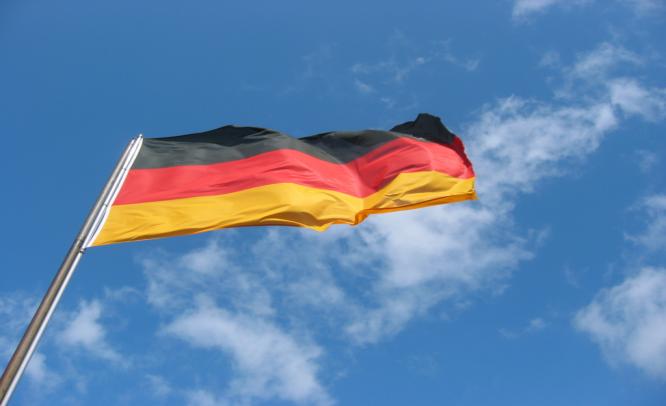Despite predictions to the contrary, the country’s business confidence reached its highest point in 21 months in February, reports Team IFM
Berlin, February 25: German business confidence rose for the fourth successive month in February to reach its highest point since July 2011, bucking forecast by an economists’ poll that predicted otherwise and indicating that the German economy was holding its own, data released by a research group on Monday showed.
The Ifo Institute Business Climate Index, based on a survey of 7,000 firms from the country’s manufacturing, construction, wholesaling and retail sectors, crept up to 111.3 in February from 110.6 the previous month, despite a drop in expectations.
In the same vein, the index for business conditions rose to 114.4 in the month under review from 112.4 in January, said the research organisation, part of the CESifo research group consisting of the Center for Economic Studies (CES) and the CESifo GmbH (Munich Society for the Promotion of Economic Research) apart from Ifo Institute.
“Assessments of the current business situation were significantly better than last month,” said Ifo Institute President Hans-Werner Sinn in a statement. “Expectations regarding future business developments dipped slightly, but remain optimistic. The German economy is holding its own in a changeable global climate.”
However, economists had predicted a decline to 110.5, according to the median of 41 estimates in a Bloomberg News survey.
At the same time on the other hand, Ifo Institute’s data was in line with the flash estimate findings released last week by economic health tracker Markit, that said the economy of the euro area in general – and that of Germany in particular – continued to expand in February, enjoying its strongest run of growth since the first half of 2011.
“The economic upturn in Germany’s private sector gathered further momentum in February, with business activity rising at the quickest pace in 32 months,” said Oliver Kolodseike, economist at Markit and author of a flash estimate for Germany.
Brighter Outlook
The Ifo Institute seems to bolster this view. According to it, assessments of the February current business situation were significantly better than last month despite expectations of future business developments dipping slightly. “The German economy is holding its own in a changeable global climate,” it said in its report.
Similarly, Sylvain Broyer, chief euro-region economist at Natixis in Frankfurt, said he expected growth acceleration this year in Germany. “It’ll be led by a private consumption like last year,” Bloomberg quoted Broyer as saying. “This year, what should be new is business investment.”
Regarding the business climate, Ifo said it improved for the fourth month in succession in manufacturing.
“Manufacturers are far more satisfied with the current business situation,” it said. “Their confidence in future business developments weakened slightly, but remained high. Although the export outlook clouded over, the majority of manufacturers remain optimistic.”
In retailing too, the business climate index rose significantly, according to the research group, noting that assessments had reached their highest level since spring 2012. Expectations regarding future business developments also continued to brighten.
In sectors such as wholesaling, construction and service sector, however, it was a different story.
The business climate index decreased slightly after last month’s sharp increase in wholesaling. “Wholesalers were once again clearly more satisfied with their current business situation. However, they are no longer quite as positive about future developments,” its report said.
Similarly, assessments of the current business situation are less favourable and the index fell slightly though remaining at a high level. “Last month’s optimism regarding the next six months also faded somewhat,” Ifo said.
The indicator for the German service sector also fell in February. Service providers were “somewhat” less favourably inclined than in January, and “there was a clear downturn in expectations”.
Happy Estimate
In its flash estimates for Germany released on February 20, Markit said the country’s private sector firms reported a further solid rise in activity in February.
It said its seasonally adjusted flash composite output index had posted a 32-month high of 56.1 in the month under review, up from January’s reading of 55.5, stretching the current sequence of activity growth to 10 months.
Manufacturing companies signalled an easing in the pace of production growth in February, although the latest expansion was still among the steepest seen since early 2011. Increased order intake was the primary driver for the latest rise in output, according to Markit’s panel members.
However, the Markit estimates had differed from Ifo’s in the service sector; according to it, service providers reported the “sharpest rise in activity since November”, with new orders being placed at the quickest pace in three months.
Anecdotal evidence suggested that rising inflows of new work were linked to increased demand from both domestic and foreign markets and unusually mild weather. Concurrently, manufacturers saw new export orders rising at the second-sharpest rate in almost three years, with the US, Asia, the Middle East, Poland and Russia mentioned as sources of growth.
Capacity pressures continued to build during February, with backlogs of work rising for a fifth month running. The rate of backlog accumulation eased, however, to the weakest since last October.
In line with the trends for output and new orders, German manufacturing companies also reported higher purchasing activity in February. The latest expansion was robust and among the sharpest in the past three years.
“Survey data for 2014 dovetails nicely with the expectations of government statisticians, who recently raised their growth forecast for the German economy to 1.8 per cent,” said Markit economist Kolodseike.
“The recovery in the euro zone’s largest economy is looking more and more sustainable, underpinned by the strongest rate of job creation in just over two years.”

